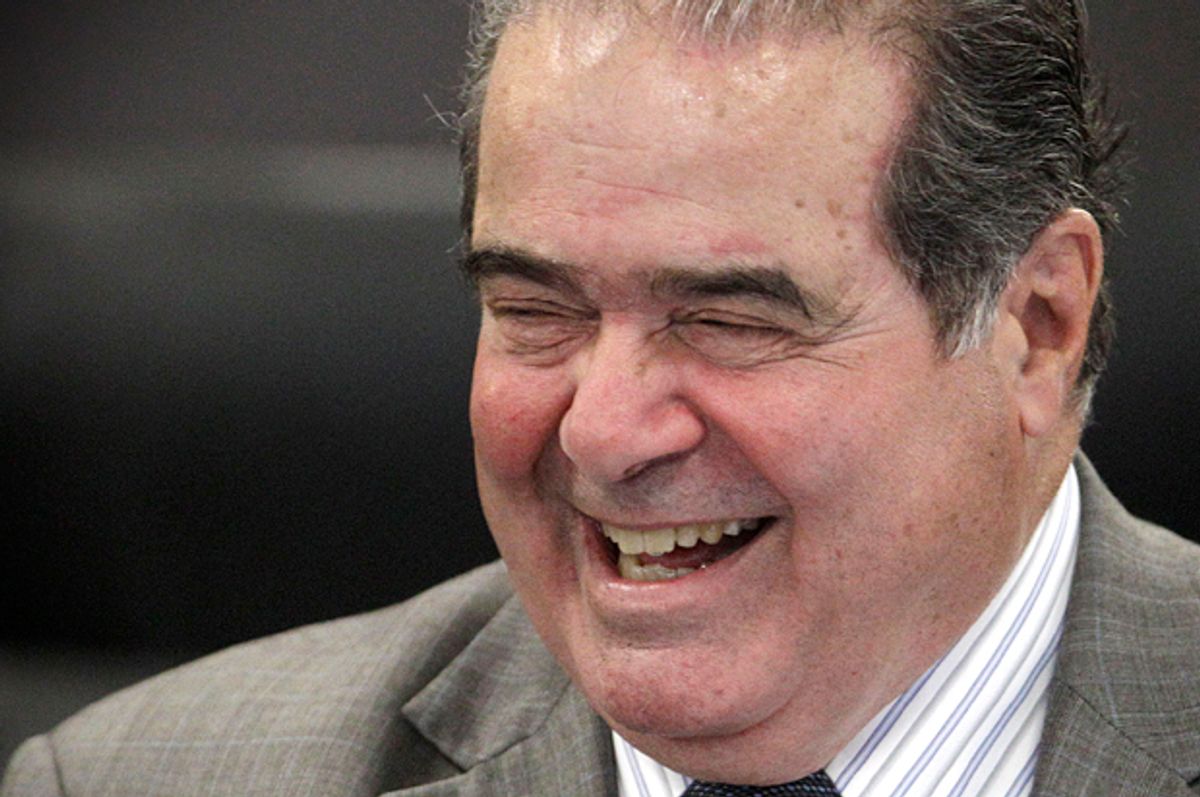Earlier Monday, the Supreme Court listened to oral arguments for Friedrichs v. California Teachers Association, a case that could quite possibly lead to the death of unionization in the public sector as we know it. And if the first impressions of those who were in attendance are anything to go by, one of American society’s last bulwarks against neoliberalism is very likely about to crumble:
If you want to really master all the nuts and bolts of the case, you should read this explainer from The New York Times.
The gist, though, is relatively straightforward: Because public unions have to negotiate on behalf of all workers — and not just those who are union members — during collective bargaining, it’s long been normal for all workers so affected to be charged a fee. The idea is that because these workers may benefit from the unions efforts, despite not being themselves members, they should also have to make a financial contribution. This is supposed to fix the unions’ free rider problem.
That’s been the norm since a Supreme Court ruling in the late-1970s. But thanks to the Friedrichs case, which was brought by 10 non-union member California teachers and coordinated by the ultra-conservative Center for Individual Rights, that status quo is endangered. Making non-members contribute to collective bargaining, they say, is tantamount to compelling them to endorse the union’s political speech. Contrary to the prevailing understanding, they say, collective bargaining is political.
If the Court sees things their way, it’s likely that they’ll disallow these mandatory contributions from non-members. If that happens, unions say, and the vast majority of outside observers agree, then these already-embattled unions will almost certainly be unable to afford their own perseverance. Suddenly, just like that, a “right-to-work” framework will be imposed on public unions across all 50 states. An inverse of Gov. Scott Walker’s process, in other words, goes national.
Assuming the Court rules the way anti-public union types hope, many people will understand the decision in much the same terms as those I used to begin this piece. They’ll say it is the inevitable next step in the long-term and long-apparent dissolution of organized labor in America. They’ll note that public union members are disproportionately women and African-American. They’ll say the conditions are set for the middle class to shrink further still. They won’t be wrong.
But as this George Will Op-Ed from last week makes clear, the court siding with Friedrichs would also be about another trend that has helped create political conditions necessary for rising inequality: the right’s weaponization of free speech. This case isn’t about the division of power between labor and capital, Will suggests. That’d be too prosaic. No, he writes, this case is about something more important than dismal economics. It’s an epochal struggle over — what else? — tyranny and freedom:
Never in its 225 years has the First Amendment been under so many varied and sustained attacks. In academia, it is increasingly considered a dispensable impediment to superior claims of social justice. In the U.S. Senate, 54 Democrats voted to amend it in order to empower the political class to regulate campaign speech about the political class. So, on Monday it would be exhilarating to hear evidence that the court is prepared to correct its contribution to the practice of subordinating First Amendment protections to supposedly superior considerations.
And if you’re reminded of the arguments conservatives use to defend the gutting of campaign finance regulation — another example of the Supreme Court using novel definitions of free speech to effectively rebut Justice Holmes nearly 100 years later — that’s for a good reason. The amendment Will describes as an attempt to “empower the political class to regulate campaign speech about the political class”? Its purpose was to overrule a previous Supreme Court decision: Citizens United.




Shares